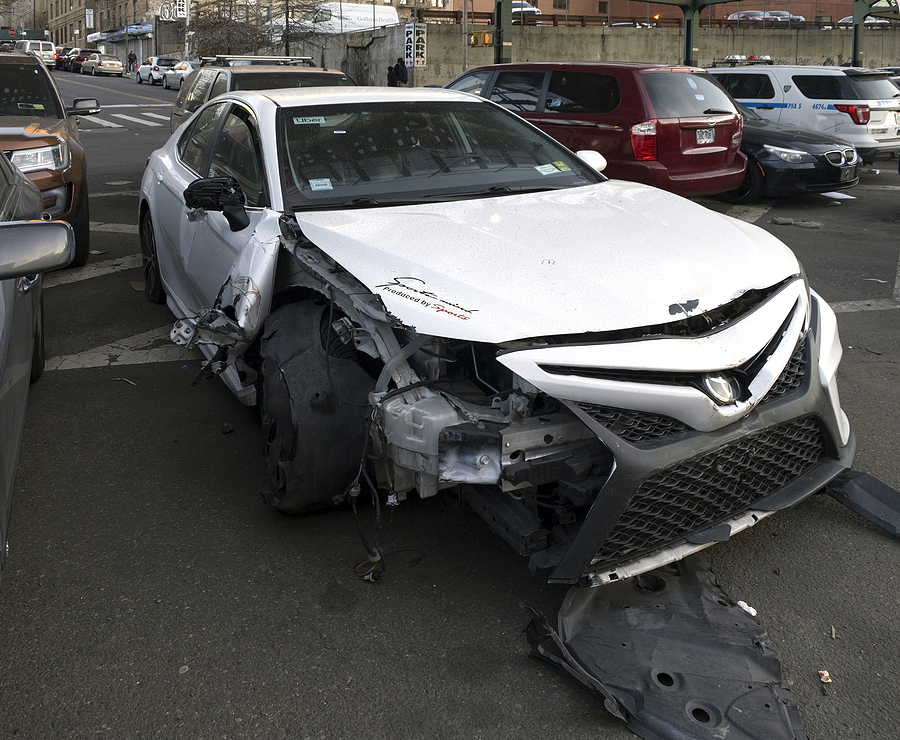If you’ve found yourself in possession of an old clunker that’s past its prime, you might be wondering how much value it still holds. In the realm of junk cars, understanding the concept of ‘fair market value,’ ‘actual cash value,’ and how they impact the worth of a ‘total loss vehicle’ is crucial.
This blog serves as a comprehensive guide, aiming to shed light on these terms and provide you with the knowledge needed to ensure you receive a fair deal for your junk car. Whether you’re looking to sell or simply understand the playing field better, read on to demystify the intricacies of junk car valuation.

What is Fair Market Value?
In simple terms, fair market value (FMV) refers to the price at which a willing buyer and a willing seller would agree on the sale of an item in an open market setting. This definition makes it clear that FMV varies depending on the current market conditions and pricing trends for similar items. When it comes to junk cars, FMV is determined by factors such as age, condition, make and model, mileage, and demand for spare parts. These components work together to determine the value of your junk car in the current market.
Actual Cash Value vs. Fair Market Value
Another term that often gets thrown around when discussing junk car valuation is actual cash value (ACV). Actual cash value refers to the amount a car is worth after factoring in depreciation and wear and tear. Unlike fair market value, which takes into account the market conditions, actual cash values only consider the physical condition of the vehicle. This means that an old car with low mileage, for example, could have a higher ACV than a newer car with high mileage if it’s been maintained well.
Total Loss Vehicles
A total loss vehicle is a car that has been deemed unrepairable or unsafe to drive due to severe damage. In this case, the insurance company will typically offer you a settlement based on the ACV of your car. However, it’s essential to note that the ACV offered by your insurance company may not always align with the fair market value of your junk car. This is because insurance companies often use their own algorithms and pricing guides to determine ACV, which may not accurately reflect the current market conditions.
How to Determine Fair Market Value for Your Junk Car
Now that you understand the concepts of fair market value, actual cash value, and total loss vehicles let’s look at how you can calculate the fair market value of your junk car. The first step is to gather as much information about your car as possible, including its make, model, year, mileage, and any recent repairs or upgrades. Next, research similar vehicles in the market to get an idea of their prices. You can also use online pricing guides specific to junk cars or consult with a reputable junk car buyer for an estimate.
Final Thoughts
Understanding the fair market value of your junk car is crucial to ensure you receive a fair deal when selling or dealing with insurance claims. By knowing the difference between FMV and ACV, as well as being aware of the factors that determine a total loss vehicle, you can approach any junk car transaction with confidence and make informed decisions. Remember to do your research, gather information, and consult with professionals to get the most accurate fair market value for your junk car.
With this knowledge in hand, you can confidently navigate the world of junk cars and ensure you receive the best deal possible. So, whether you’re looking to sell your old clunker or determine its worth for insurance purposes, we hope this blog has provided you with valuable insights into understanding the fair market value of your junk car.
Searching for junk car buyers that pay the most for total loss vehicles? Look no further–you’ve come to the right place! Contact GC’s Junk Cars at 317-608-2188 to sell a junk car for cash in Indianapolis, Indiana. We offer free towing with our in-house tow truck, so all you have to do is call and accept our offer!
Related Posts:
How to Assess Your Junk Car’s Worth
Is My Car Totaled If It Is Over 50 Percent Damaged?
Getting the Best Deal for Your Junk Car: An Insider’s Advice
